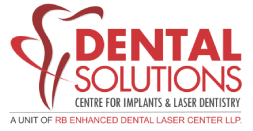Best Dental Clinic In Bangalore Indiranagar | Best Dentist in Bangalore Indiranagar
Home » Blog » General dentistry » Top 10 Foods That Are Surprisingly Bad for Your Teeth
Top 10 Foods That Are Surprisingly Bad for Your Teeth

When it comes to protecting your teeth, brushing and flossing aren’t the only things that matter. What you eat plays a significant role in your oral health. While it’s common knowledge that candy and soda can damage teeth, there are many everyday foods that are surprisingly harmful—even the so-called “healthy” ones.
Here are the top 10 foods that may secretly be sabotaging your smile, and what you can do to enjoy them more safely.
1. Dried Fruits
Dried fruits like raisins, apricots, and dates may seem like a healthy snack, but they’re high in sugar and extremely sticky, which allows them to cling to the crevices of your teeth and feed harmful bacteria for hours.
Tip:
If you eat them, rinse your mouth with water and brush afterward to reduce the sugar residue.
2. Citrus Fruits
Lemons, oranges, and grapefruits are rich in vitamin C but are highly acidic, which can erode enamel and increase tooth sensitivity over time.
Tip:
Don’t brush your teeth immediately after eating citrus—wait 30 minutes and rinse with water first.
3. Pickles
Pickles are often soaked in vinegar, which is acidic and can weaken enamel. Their sour taste may also cause excess salivation, which spreads the acid across your teeth.
Tip:
Eat pickles in moderation and follow up with water or a dairy product to neutralize the acid.
4. Ice
While ice has no sugar or acid, chewing on hard substances can crack or chip your teeth and damage dental work like crowns or fillings.
Tip:
Use ice to cool drinks, not as a snack.
5. Potato Chips
Chips are loaded with starch, which turns into sugar in your mouth. The tiny pieces easily lodge between your teeth and feed cavity-causing bacteria.
Tip:
Floss after eating chips to remove particles trapped between teeth.
6. Bread
Like chips, refined bread breaks down into sugar. It also becomes sticky when chewed, which makes it easier to get stuck in your teeth and gums.
Tip:
Choose whole grain bread with less refined flour and rinse after eating.
7. Sports Drinks
Often perceived as healthy, most sports drinks are high in sugar and acids, which can lead to enamel erosion and tooth decay, especially when sipped over time.
Tip:
Use a straw to minimize contact with teeth or switch to water.
8. Tomato-Based Sauces
Tomatoes are acidic by nature, and sauces made from them often have added sugar, making them a double threat to your enamel.
Tip:
Eat tomato sauces with cheese or drink water after your meal to help neutralize acidity.
9. Popcorn
Popcorn hulls can get stuck between teeth or under gums and are hard to remove. Unpopped kernels can also crack your teeth if bitten accidentally.
Tip:
Floss carefully after eating popcorn and avoid chewing hard kernels.
10. Alcohol
Alcohol causes dry mouth, reducing saliva flow that normally helps wash away bacteria. Many alcoholic drinks also contain sugar and acids.
Tip:
Stay hydrated with water when drinking and maintain good oral hygiene.
How to Minimize Damage
Even if you love some of these foods, you don’t need to give them up completely. Here are a few general tips to help reduce their impact:
- Rinse your mouth with water after eating acidic or sugary foods
- Wait at least 30 minutes before brushing after acidic meals
- Use a straw for sugary or acidic beverages
- Eat dairy or fibrous foods (like cheese or apples) to help neutralize acids
- Visit your dentist regularly for professional cleanings and checkups
Frequently Asked Questions (FAQs)
Q1. Should I stop eating all acidic or sugary foods completely?
No, but you should enjoy them in moderation and take preventive steps like rinsing with water or brushing after a while to protect your enamel.
Q2. Is fruit juice better than soda for my teeth?
Not necessarily. Many fruit juices have just as much sugar and acid as soda. If consumed frequently, they can cause similar enamel erosion.
Q3. What foods are actually good for my teeth?
Cheese, leafy greens, fibrous vegetables, apples, carrots, almonds, and water are all great for your oral health.
Q4. Does brushing right after eating acidic foods help?
No. Brushing immediately can actually harm softened enamel. Wait about 30 minutes before brushing to avoid further damage.
Q5. Can chewing sugar-free gum help after eating harmful foods?
Yes. Chewing sugar-free gum stimulates saliva production, which helps neutralize acids and wash away food particles.
Being mindful of what you eat is as important as brushing and flossing. Even some foods considered “healthy” can negatively impact your dental health if consumed the wrong way or too often. By knowing which foods to watch out for—and how to enjoy them more responsibly—you can protect your smile for years to come.
